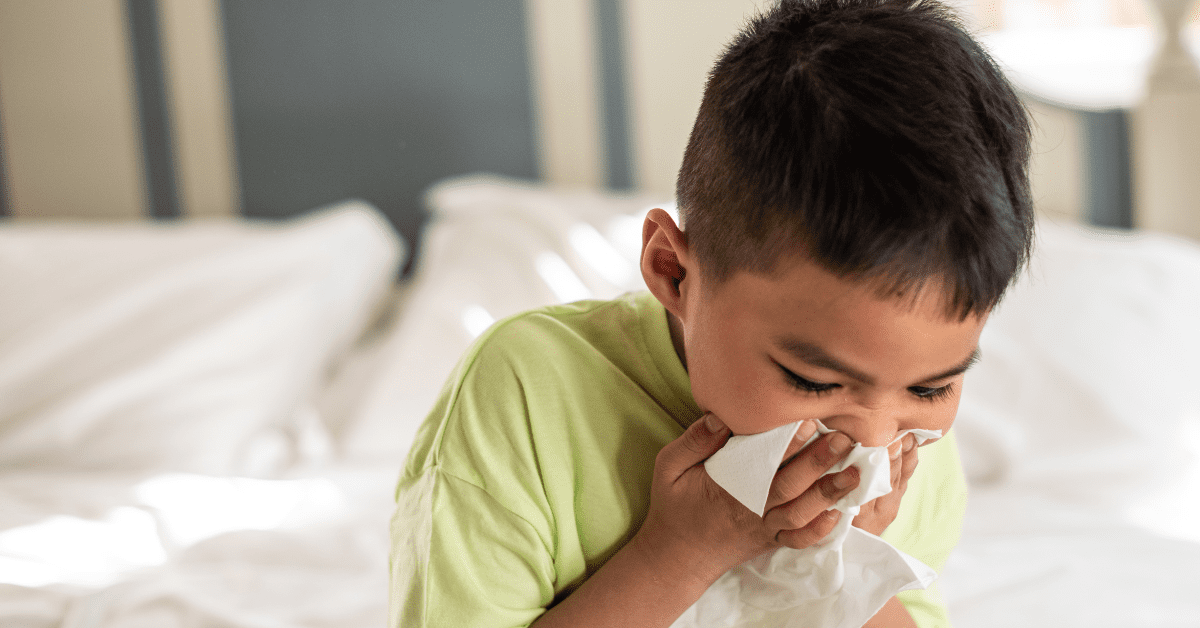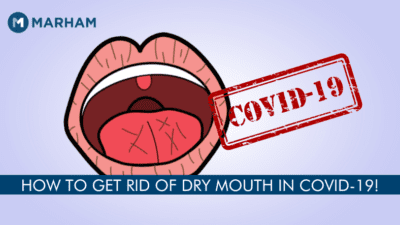The coronavirus affects all parts of the body including the oral cavity. A lot of people are searching about dry mouth COVID, meaning it is a prominent symptom of the virus.
It is important to know everything about dry mouth in COVID-19 so that you can avoid discomfort. Check out all the necessary information and effective treatment options for dry mouth COVID-19 in this health blog.
What is a Dry Mouth?
A dry mouth is caused by inadequate saliva production or total salivary gland malfunction. But, in many situations, this disease is caused by changes in saliva quality, rather than changes in saliva quantity. The most prevalent cause of dry mouth is medication.
How Does COVID-19 cause Dry Mouth?
Xerostomia, or dry mouth, is one of the oral signs of COVID-19. Although several causes of xerostomia have been identified, it appears that the presence of the SARS-CoV-2 virus in salivary glands and the resulting changes in these glands may be the most relevant cause.
According to research called the Oral Manifestations in Patients with COVID-19:
“While loss of taste and smell were among the first widely known symptoms of the virus, dry mouth has become the most common oral manifestation of COVID-19, present in 43 percent of cases.”
Research looking at the function of the oral cavity in SARS-CoV-2 infection discovered evidence that the virus infects cells in the mouth, which might explain why certain COVID-19 patients have taste loss, dry mouth, and blistering.
How Does Dry Mouth Feel?
Scientists believe that dry mouth frequently appears before the more prevalent signs of the coronavirus, such as fever, cough, and dyspnea.
As a result, it is possible that this indicator might be employed for early diagnosis, quarantine, and treatment of patients.


If you have dry mouth, you may have the following indications and symptoms all or most of the time:
- Dry or painful throat and hoarseness
- Dryness or a feeling of stickiness in your mouth
- Dry or grooved tongue
- An altered perception of taste
- Thick and stringy saliva
- Bad breath
- Difficulty eating, speaking and swallowing
If you have any of these symptoms, it is advised to see a doctor. Click here to see an online doctor today via the Marham app.
How to treat Dry Mouth in COVID?
Here are six treatment options for dry mouth COVID:
1. Stay hydrated
A dry mouth is frequently caused by dehydration, which occurs when your body does not have enough liquids to generate the necessary saliva. So, it is important to stay hydrated by drinking lots of fluids.
You must choose from healthy fluids like fruit juices that can provide Vitamin C and increase your immunity against coronavirus. Or you can drink herbal teas to get antioxidants that fight against inflammation in the body.
2. Reduce caffeine consumption
Coffee and tea contain chemicals that make your mouth feel dry. The feeling is known as astringency, and it can cause your mouth to pucker. Therefore, it is better to avoid caffeinated drinks.
If you can not totally restrict caffeine, try to limit it to as little as possible. You can try herbal teas instead of coffee or black tea as well.
3. Avoid using alcohol-based mouthwashes
It is also not recommended to use alcohol-based mouthwashes if you have a dry mouth. The alcohol can reduce saliva production and cause an increase in your discomfort. It might also cause a burning feeling in your mouth.
4. Quit smoking
Tobacco contains nicotine, which lowers saliva flow and can irritate an already dry mouth. Quitting smoking is the most effective strategy to fight dry mouth caused by tobacco usage.
5. Use a humidifier at night
Using a humidifier to provide humidity to the air may help keep the airways and mouth moist, preventing dry mouth. You can put the humidifier in your bedroom, living room, or at your workstation depending upon where you spend the most time.
6. Use an over-the-counter dry mouth mouthwash
Try a dry mouth mouthwash, particularly one containing xylitol, which also protects against tooth decay. It can help in increasing your saliva production and reduce the symptoms of dry mouth significantly.
Also, read Other Reasons Behind Dry Mouth (Xerostomia)
Things to Avoid with a Dry Mouth:
- Do not consume excessive amounts of alcohol, caffeine (such as tea and coffee), or fizzy drinks.
- Avoid using acidic artificial saliva products
- If you have your own teeth, avoid meals that are acidic (such as lemons), spicy, salty, or sweet.
- Do not smoke; do not sleep with dentures in place; and do not discontinue a prescription medication without first seeking medical counsel, even if you suspect it is causing your symptoms.
See a Doctor Online!
If your mouth is still dry after a few weeks of attempting home or drugstore treatments or you have difficulties chewing, swallowing, or talking, consult a doctor.
Can’t Find the App?
| Android | IOS |
|---|---|
  |
  |
FAQs
Can the coronavirus survive on surfaces?
There have been a few reports of coronavirus spreading through surfaces. However, the likelihood of this occurring is quite low. The rate of COVID-19 surface transmission is less than one in ten thousand. It is most commonly transmitted by direct touch, airborne transmission, or droplets.
What are some symptoms of COVID-19?
The most common symptoms of COVID-19 are fever, cough, tiredness, and loss of taste or smell. Some less common symptoms can be sore throat, headache, aches and pains, and diarrhea. Some serious signs are shortness of breath, confusion, and chest pain.
Is COVID-19 caused by a virus or a bacteria?
The virus responsible for COVID-19 belongs to the Coronaviridae family of viruses. Antibiotics are ineffective against viruses. However, people may acquire a bacterial infection with COVID-19 as well. In this scenario, your doctor may advise you to take antibiotics.

